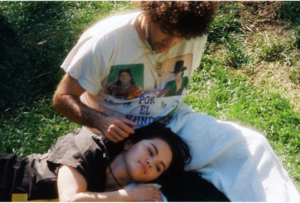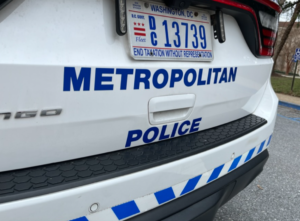Tate McRae is So Close To…Something, I Guess

Photo from Official Charts
By Tim McGuire
Tate McRae has been building up a consistent name in the pop scene, with hits “You Broke Me First” and “Greedy,” building her a loyal fanbase. She is already back with a new hit song this year, “It’s OK I’m OK,” and a brand new album called So Close To What. With an acclaimed dance career under her belt, many people call her a popstar of the new era, but there is also a faction against her music. Now, this is my first time listening to Tate McRae outside of her hits, so I do not know much about her outside of her prior dance career.
The album starts with a decent three track run, composed of “Miss possessive,” “Revolving door,” and “Bloodonmyhands.” This serves as a good introduction to Tate and the album, setting the stage for a pop album with fast, booming production. Flo Milli also makes an appearance on “Bloodonmyhands,” which I must admit she steals the show with. Tate is fine on the song, but Flo fits the song much better. One thing I noticed during these first few songs is that there was no gripping or interesting lyrical themes. “Miss possessive” and “Bloodonmyhands” can be summed up to Tate telling someone to back off, and “Revolving door” is an example of a very big lowlight in this album: the lyrics.
Across the 45-minute runtime, Tate sings about many romantic relationships. There are a lot of times where Tate will sing one thing but then completely go the other direction in another song. Take the back-to-back songs “Purple lace bra” and “Sports car,” for example. The former is a slow jam about Tate having to use her sex appeal just to get a man to listen to her, and the latter is about how badly Tate wants to have sex with a man. It makes no sense to have a song about being more than your body to be immediately before a sex jam.
Another aspect I find aggravating about the songwriting is the mixed signals Tate sends. For example, on “Signs,” she sings about how she means the complete opposite of what she says: “For God’s sake, don’t believe a word I say; I wanna touch on you all day.” While an argument can be made that this is just the theme of the song, it does not help that these types of lyrics can be found all over the album. Listening to this album gets frustrating on behalf of the men in Tate’s life.
Now that the tangent over lyrics is done, let’s focus on the instrumentals. Tate has adopted the 2000s Y2K throwback style ever since her song “Greedy” blew up a few years back, and she continues sporting it today. On So Close To What, the style has its good moments, but feels repetitive the further you get into the album. I find “2 hands” and “Dear god” to be the worst offenders of this, both being generally boring songs that sound too much alike at either end of the runtime. The inspired production becomes too much at other times, like in the aforementioned “Sports car.” As I was listening to this, I couldn’t help but think of it as a Kidz Bop version of “Buttons” by The Pussycat Dolls.
If there’s any positives I can give this album, I would say that “Purple lace bra” is actually pretty good and stands proudly as the best track, songwriting and production wise. The closing song, “Nostalgia,” also shares a little bit of who Tate is, with her singing about her family and her lover. Yet, this does make light of another flaw: I still do not know who she is. I had little idea of who Tate McRae was before listening to this album, and it feels like I learned nothing about her other than how she navigates relationships. Really anyone could sing these songs, but I will give props to Tate for having a unique voice that stands out in today’s soundscape.
I believe the biggest reason I did not find this album very enjoyable is that someone else from the era she is pulling from has done it better, including superstars such as Britney Spears, Nelly Furtado, etc. Tate is drawing from these early 2000s influences without adding anything new, so it ends up sounding like a reheated dinner. There is already an extensive catalog of the Y2K era of music, so why would anyone prefer So Close To What over it? That, paired with the repetitive songs, makes this album feel unnecessary in the grand scheme of things. Hopefully, next time, she won’t get “caught up in a rewrite of the same song,” as she says on “Greenlight.”








